Parking tiles are more than just an outdoor surface solution — they are a blend of functionality, safety, and style. Whether you choose porcelain, vitrified, or interlocking concrete tiles, the right decision will enhance your property’s appeal and ensure long-lasting performance.
By considering material, thickness, slip resistance, and design, you can invest in a parking area that not only supports heavy vehicles but also becomes a standout feature of your exterior space.
Why Parking Tiles Matter?
When you think about designing the exterior of a home, office, or commercial property, the focus often goes to the walls, landscaping, or lighting. But there’s one element that bears the brunt of heavy loads, harsh weather, and constant wear — the flooring of your parking and driveway areas.
That’s where parking tiles step in as the unsung heroes of outdoor design. They don’t just add a visual flair; they ensure strength, durability, and safety in high-traffic zones. From interlocking tiles to vitrified outdoor pavers, the right choice can transform a dull parking space into a stylish, long-lasting surface.
In this guide, we will explore types, features, and the many advantages of parking tiles, along with pro tips for selection and installation.
1. What Are Parking Tiles?
Parking tiles are specially engineered flooring tiles designed for driveways, garages, and outdoor parking areas. Unlike regular floor tiles, they are made with higher load-bearing capacity, anti-skid textures, and weather-resistant materials.
Key Features
- Durable construction to withstand vehicle weight.
- Non-slip texture for safe movement in wet or dry conditions.
- UV and water resistance for outdoor longevity.
- Variety of colours and patterns for aesthetic appeal.
2. Importance of Parking Tiles in Outdoor Flooring
a) Functional Strength
They prevent cracking and chipping under the pressure of vehicles.
b) Safety
Anti-skid coatings reduce the risk of accidents in rainy seasons.
c) Visual Appeal
Available in geometric designs, cobblestone finishes, and modern patterns.
d) Low Maintenance
A simple wash or occasional scrubbing keeps them looking new.
3. Types of Parking Tiles
Choosing the right type depends on location, load, and style.
3.1 Vitrified Parking Tiles
- Made from clay and silica at high temperatures.
- High load-bearing capacity and water resistance.
- Ideal for residential driveways and commercial parking lots.
3.2 Porcelain Parking Tiles
- Dense, hard, and resistant to stains.
- Great for areas exposed to spills, dirt, and oils.
3.3 Interlocking Parking Tiles
- Made from concrete or heavy-duty plastic.
- Easy to install without mortar.
- Can be replaced individually if damaged.
3.4 Cobblestone Finish Tiles
- Provide an old-world charm.
- Excellent for villas, resorts, and heritage-style properties.
3.5 Natural Stone Parking Tiles
- Made from granite, sandstone, or slate.
- Premium look but higher maintenance.
4. Parking Tile Materials and Their Pros
| Material Type | Pros | Best Use |
|---|---|---|
| Vitrified Tiles | Durable, weather-resistant | Residential + Commercial |
| Porcelain Tiles | Stain-resistant, elegant look | Garages, premium homes |
| Concrete Pavers | Affordable, easy replacement | Large parking areas |
| Granite Tiles | Natural elegance, hard surface | Luxury projects |
| Plastic Interlocking | Easy DIY install, replaceable | Temporary parking |
5. Design Patterns for Parking Tiles
Your parking area can look stunning with the right design.
- Geometric Designs – Sharp lines for modern appeal.
- Natural Stone Look – Adds a rustic touch.
- Checkerboard Pattern – Contrasting colours for bold style.
- Hexagonal Tiles – Strong interlock and unique look.
- Textured Surfaces – For better grip and safety.
6. Technical Specifications to Consider
When buying parking tiles, check these specs:
- Thickness: Ideally, 10–20 mm for strength.
- Slip Resistance Rating (R11 or higher).
- Load Capacity: At least 200–300 kg per tile.
- UV Resistance: Prevents fading in sunlight.
7. Advantages of Parking Tiles
a) Durability
They can last 15+ years with minimal maintenance.
b) Aesthetic Variety
Available in over 50+ colours and finishes.
c) Easy Installation
Especially with interlocking designs.
d) Cost-Effective
Compared to laying natural stone or asphalt.
e) Weather Resistance
No cracking during extreme heat or monsoon.
8. Parking Tiles vs. Regular Outdoor Flooring
| Feature | Parking Tiles | Regular Tiles |
|---|---|---|
| Load Capacity | High | Low |
| Slip Resistance | Yes | Limited |
| Weather Proof | Yes | No |
| Maintenance | Low | High |
| Lifespan | Long | Short |
9. Maintenance Tips
- Wash regularly with mild detergent.
- Avoid acidic cleaners to prevent surface damage.
- Replace broken tiles immediately to avoid further damage.
- Check for moss or algae in rainy seasons and clean with a brush.
10. Cost of Parking Tiles in India
| Type | Price per sq. ft. |
|---|---|
| Vitrified | ₹40 – ₹80 |
| Porcelain | ₹50 – ₹90 |
| Interlocking Concrete | ₹25 – ₹60 |
| Granite | ₹100 – ₹250 |
11. Where to Buy?
- Tile showrooms in your city.
- Online platforms like IndiaMART, Amazon, Flipkart.
- Local construction suppliers for bulk discounts.
12. Eco-Friendly Parking Tiles
Some brands now offer recycled plastic interlocking tiles, reducing environmental impact while providing durability.
13. Mistakes to Avoid
- Choosing indoor tiles for outdoor use.
- Ignoring slip resistance.
- Not matching the tile thickness to the vehicle weight.
- Poor installation without a proper slope for drainage.
14. Parking Tile Trends in 2025
- 3D textured surfaces for better grip and style.
- Matte-finish vitrified tiles for modern homes.
- Mix-and-match patterns for artistic driveways.
Parking Tiles Design Ideas
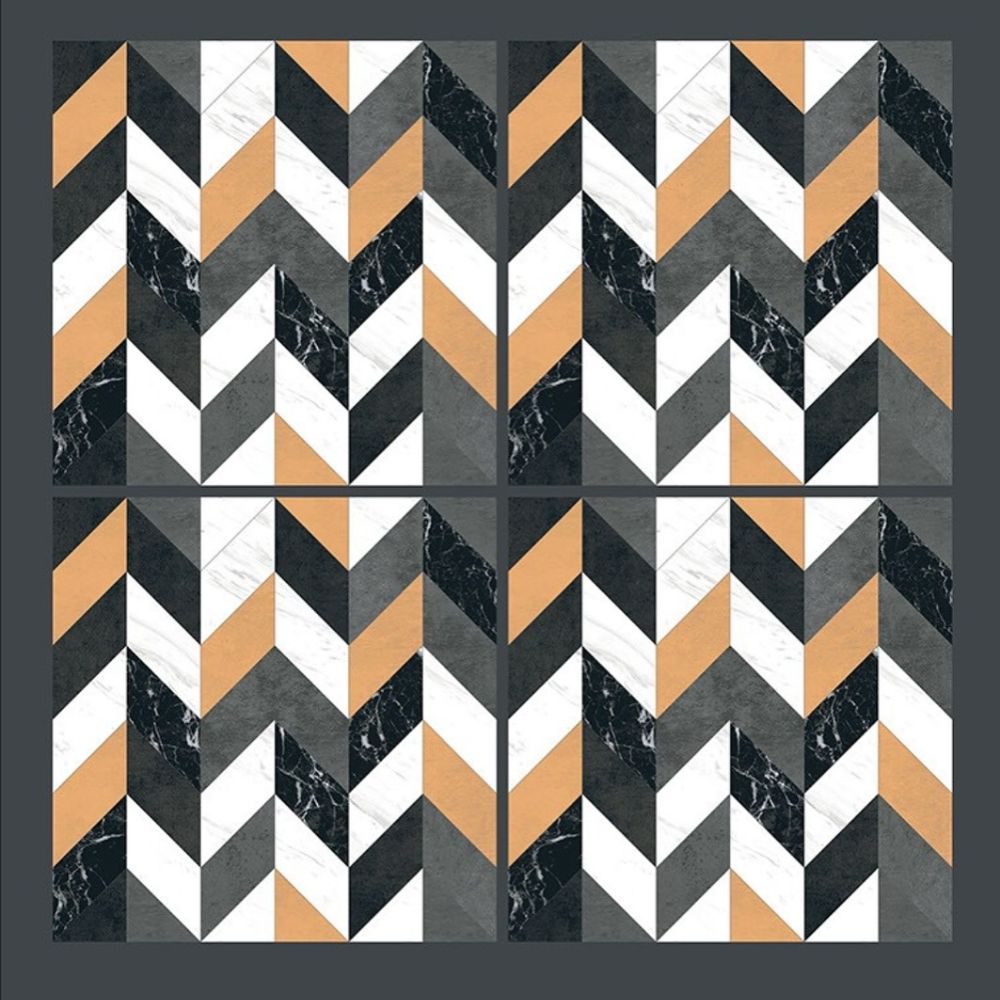
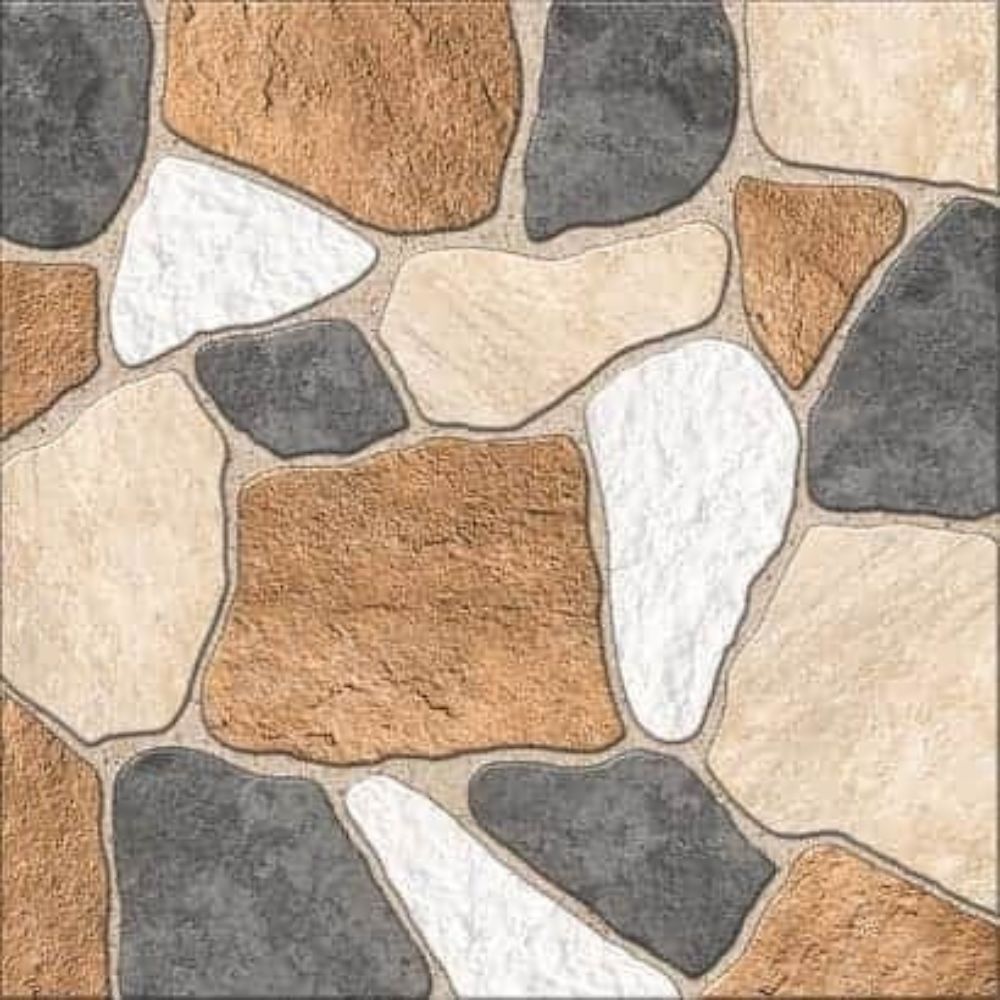
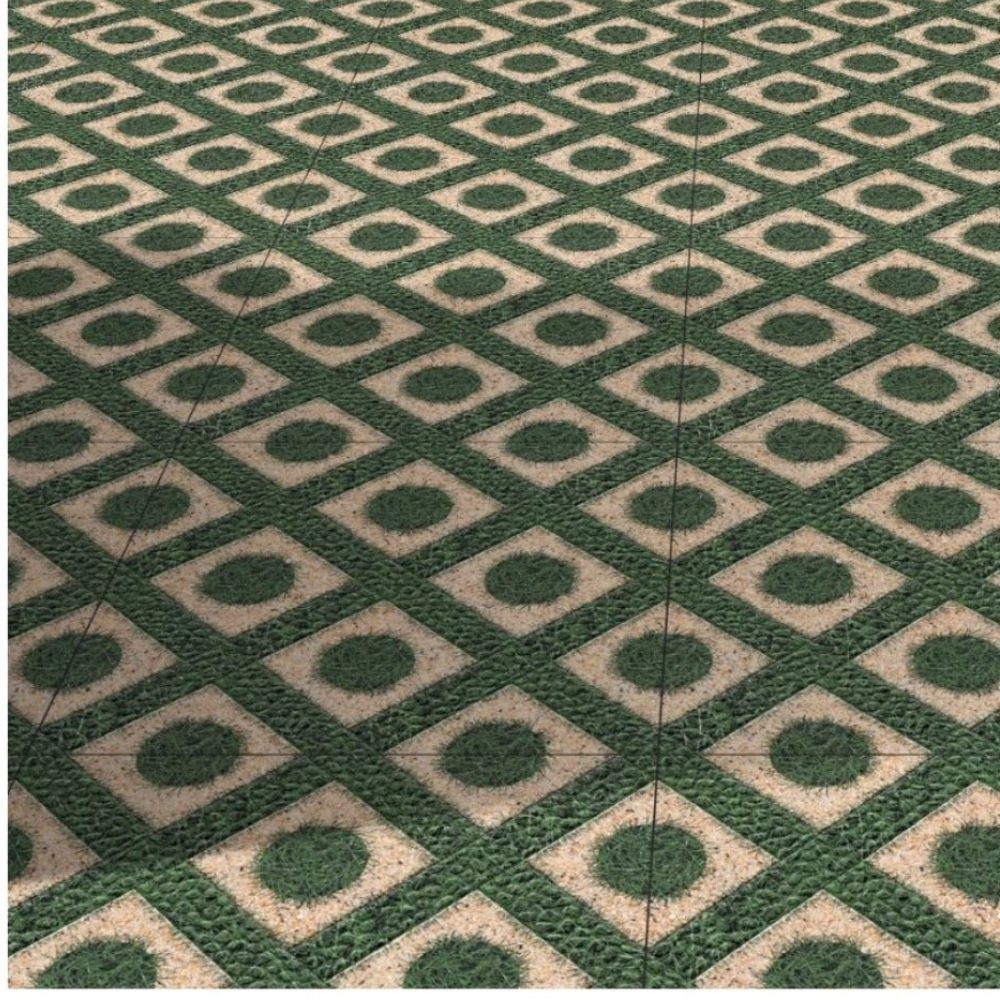
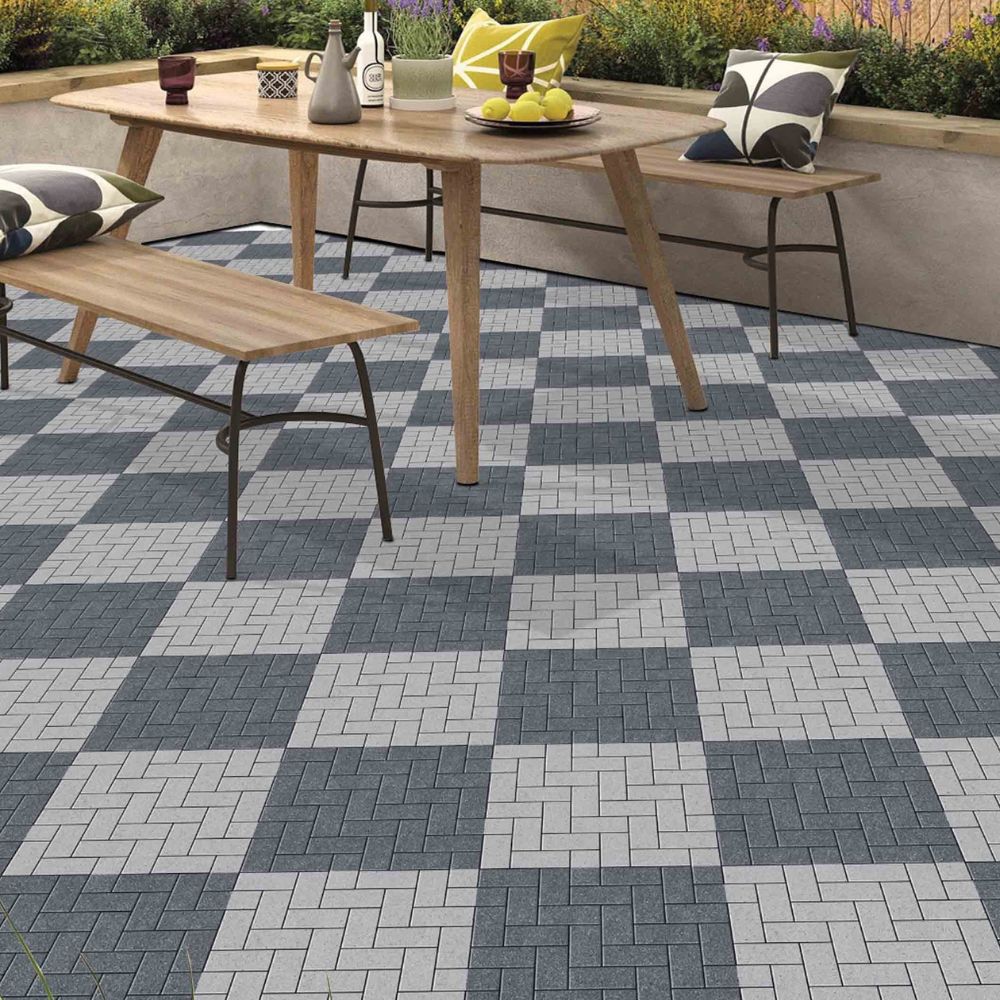
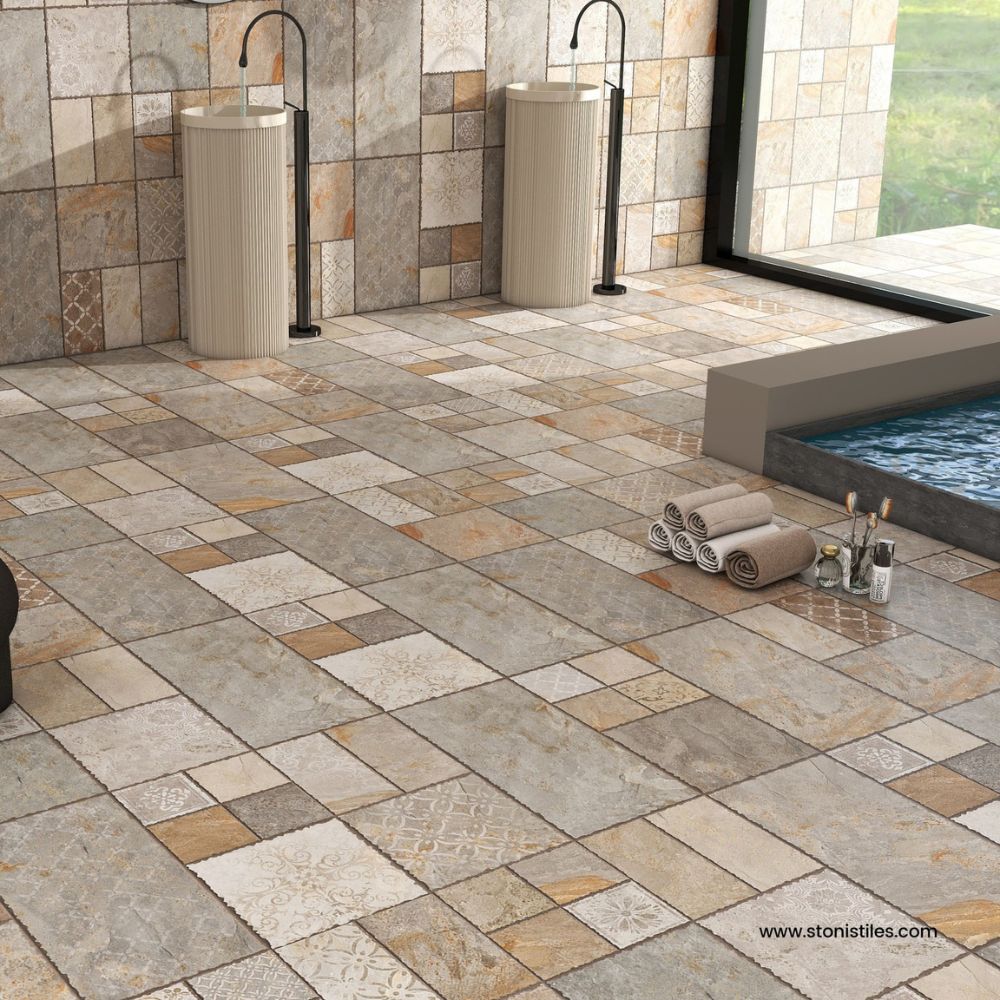
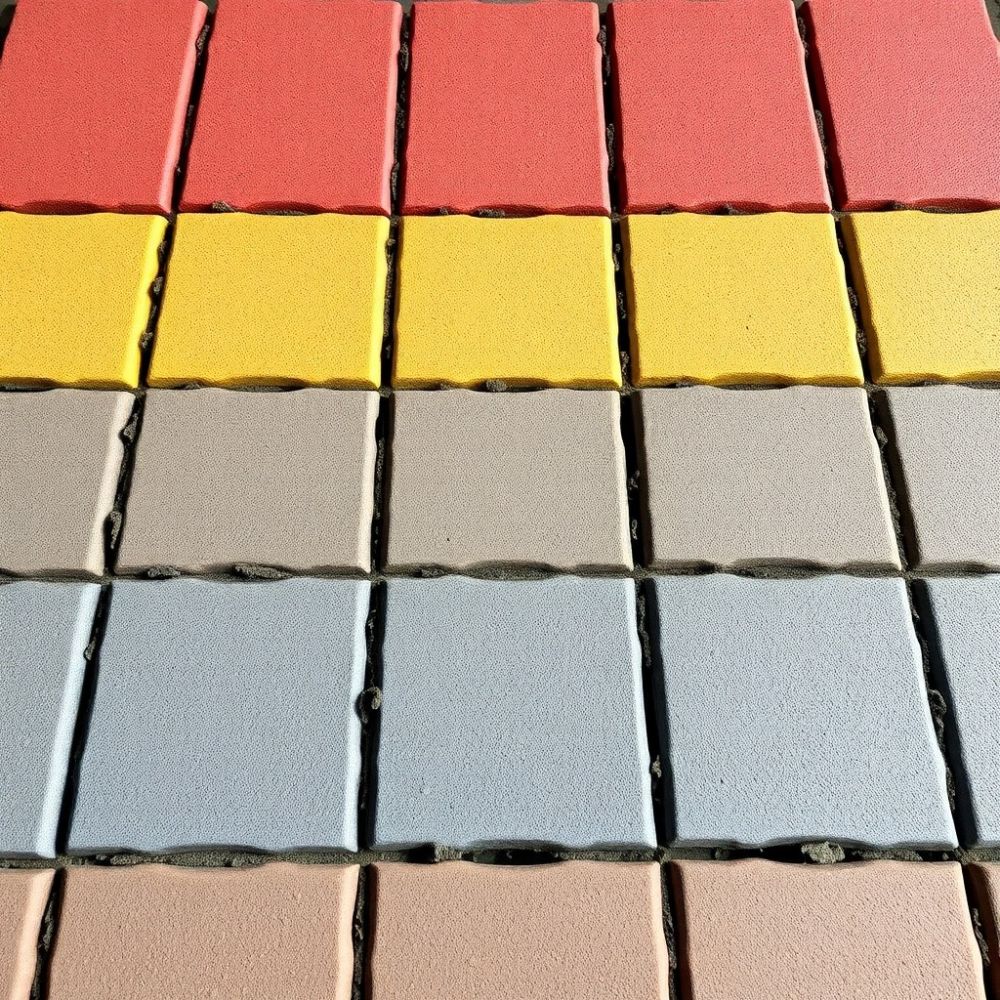
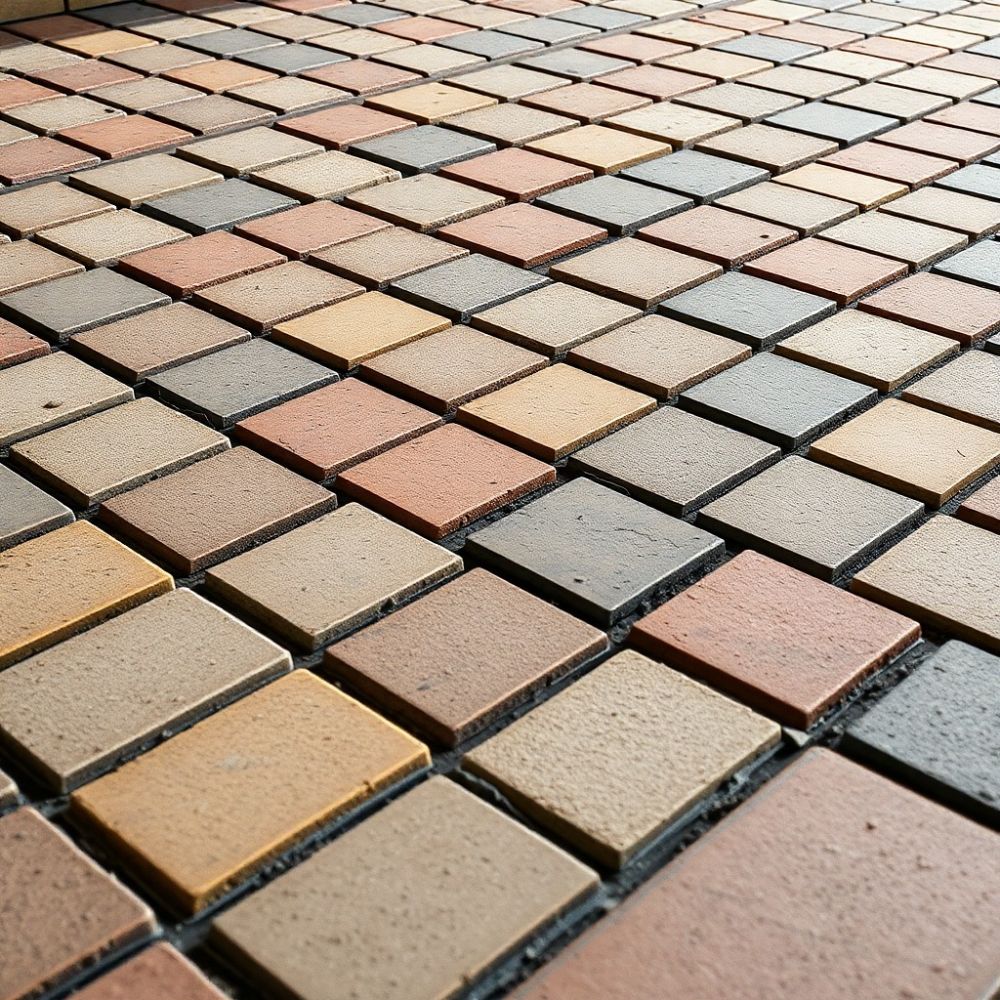
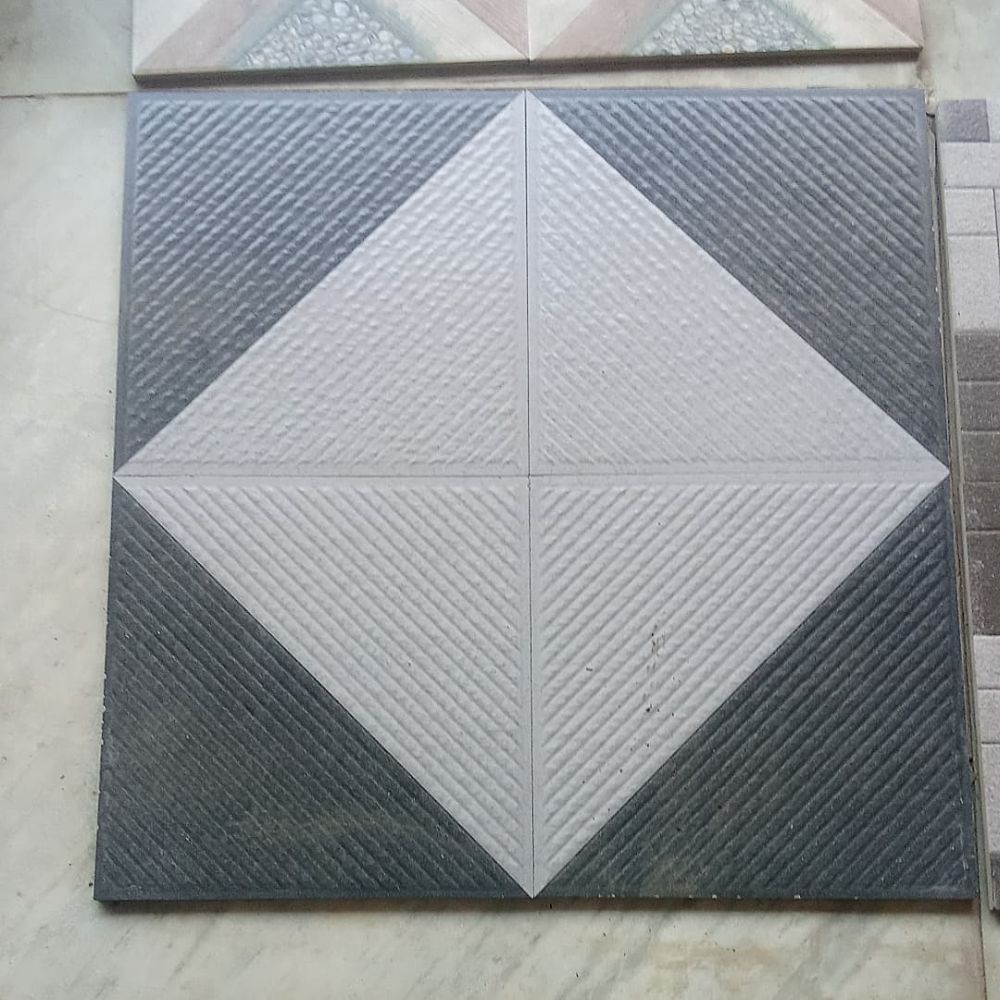
✅ Pro Tip: For the best results, always consult with a professional tile installer who can ensure proper slope, alignment, and drainage.

